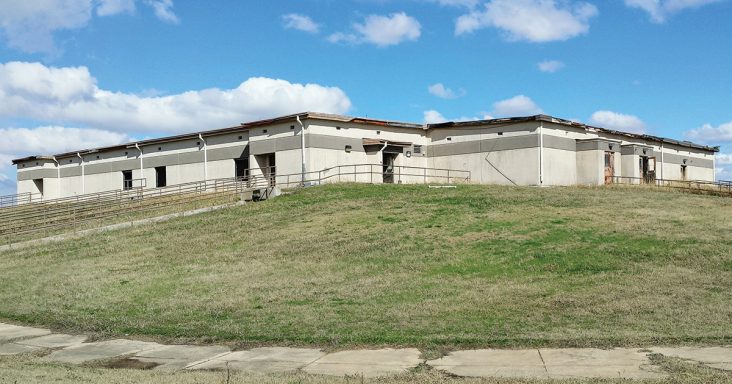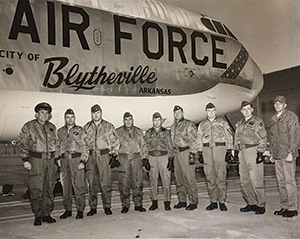National Cold War Center will tell Cold War story ‘in totality’
by November 12, 2023 7:27 am 736 views

National Cold War Center
2023 Northeast Arkansas Outstanding Business of the Year
Startup Business award
Blytheville-Gosnell Regional Airport President Barrett “Barry” Harrison had a unique situation. The National Parks Service had contacted him and on the former Blytheville Air Force base was one of the few Cold War era “alert” compounds still relatively preserved.
He and several other U.S. Air Force veterans met at the Mississippi County Chamber of Commerce office to discuss what to do with the historic installation, Chamber Executive Director Elizabeth “Liz” Smith told Talk Business & Politics. Fed up with the lack of progress, Harrison and Smith met with local business and civic leader Mary Gay Shipley.
Soon the National Cold War Center was born. It’s been more than six years since the idea to build this one-of-a-kind museum began, and a groundbreaking for the facility is still more than a year away, but progress has been made, Smith said.
“There is no place where the story of the Cold War is told in totality. That’s what we want to do,” she said.
To date, about $6 million has been raised to build the center. Originally, the price tag was $20 million, but with higher interest rates, and higher construction material and labor costs it could be closer to $30 million when the project is complete, Smith said. Officials are hopeful to break ground on the new facility in 2025.
 A feasibility study projects that a full museum would likely draw more than 50,000 visitors annually after three years.
A feasibility study projects that a full museum would likely draw more than 50,000 visitors annually after three years.
The center site is located on the campus of the former Blytheville Air Force Base (originally known as the Blytheville Army Airfield), which opened in 1942 as a training facility for World War II pilots. In 1958, the base was converted to a Strategic Air Command alert mission and remained a key U.S. military command for three decades — through events such as the Cuban Missile Crisis and the signing of the treaties that officially ended the Cold War in the early 1990s.
The Center will focus on the base’s alert compound, a facility that housed U.S. Air Force B-52 crews during the 1950s through the 1990s. The base was a top five military target for the former Soviet Union, according to historians.
An interpretive advisory board includes famed Cold War historian Dr. Christian Ostermann who oversees the Wilson Center’s Cold War International History Project in Washington, D.C.
Former U.S. Army General and NATO Commander Wesley Clark was recently added to the advisory board. The board will help develop the exhibits and content for the center, Smith said.
It’ll likely take years to raise the rest of the money needed to open the center, Smith said. She said most of the people who’ve supported the project from the beginning, including Shipley and Harrison, are still working to make this happen.
“It’s a lot of work to do something like this,” she said.
